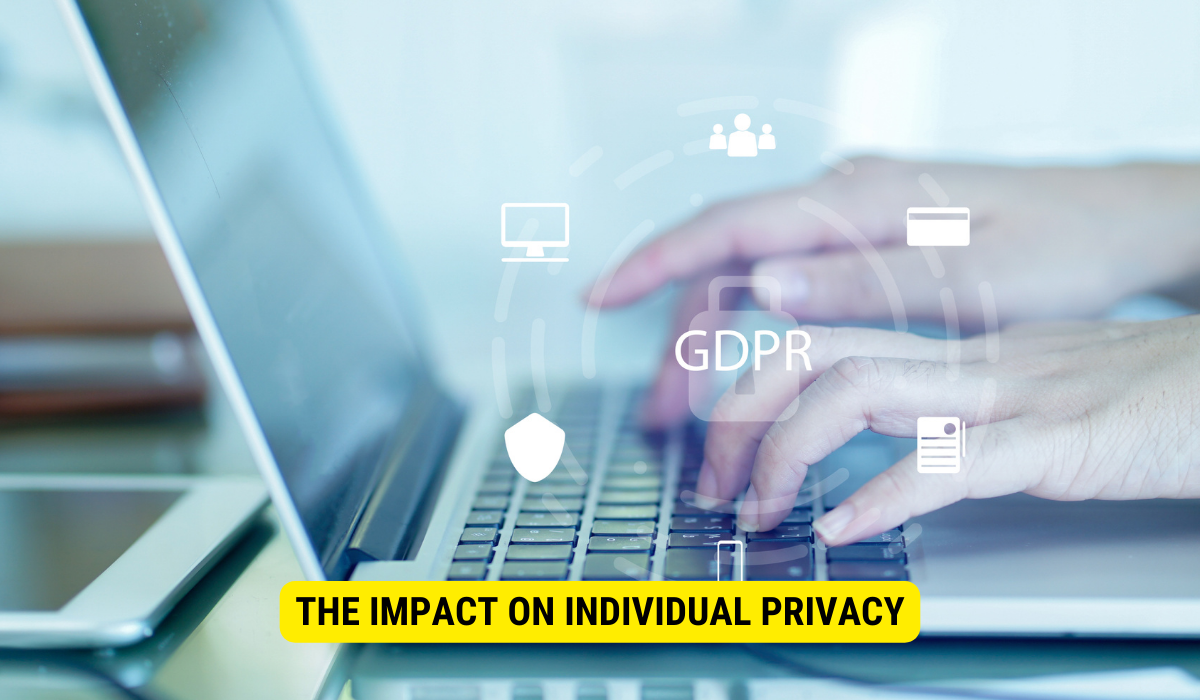Yes, private data collection does pose a threat to privacy, as it can lead to risks such as identity theft, fraud, manipulation of information, invasion of personal space, and psychological effects.
Private data collection has become a pervasive reality in today’s digital age. From websites tracking our browsing habits to social media platforms gathering personal information, it seems that no feature of our online presence is immune to data collection. But does this widespread practice pose a threat to our privacy? Together, we will explore what private data collection entails, delve into the legal framework surrounding privacy, examine the potential risks associated with data collection, discuss the impact on individual privacy, and look at ways to mitigate these threats.
Understanding Private Data Collection
Before we can assess its risks, it is crucial to understand what private data collection means. Put simply, it refers to the gathering and storage of personal information by organizations to analyze, use, or sell it for various purposes. From an individual’s online activities and preferences to their demographic information, no detail is too small to be collected and potentially monetized.
What is Private Data Collection?
Private data collection encompasses collecting individuals’ sensitive information, including their names, addresses, phone numbers, financial data, and even biometric data. This data is often obtained through various channels, such as online forms, cookies, social media platforms, and wearable devices. While some data collection is necessary for the functioning of certain services, it is crucial to balance convenience and privacy invasion.
Let’s delve deeper into the different types of personal information that can be collected. Online activities, for example, can include browsing history, search queries, and interactions on social media platforms. Preferences, however, can range from favorite movies and music to shopping habits and travel destinations. Demographic information, such as age, gender, and income level, provides valuable insights for targeted marketing and advertising.
Financial data is another aspect of private information that is often collected. This can include credit card details, bank account information, and transaction history. With this data, companies can analyze spending patterns, offer personalized financial services, or sell the information to third parties for targeted advertising.
Biometric data, although relatively new in data collection, is becoming increasingly common. This includes fingerprints, facial recognition, iris scans, and DNA samples. Biometric data has the potential to revolutionize security measures and streamline authentication processes, but it also raises concerns about the security and potential misuse of such sensitive information.
The Role of Technology in Data Collection
The rapid advancement of technology has made data collection easier and more sophisticated. With the propagation of smart devices, the Internet of Things, and artificial intelligence, companies can now gather vast amounts of data in real-time. While this technological progress has undoubtedly brought many benefits, it has also raised concerns about the extent to which our privacy is compromised.
Smart devices, such as smartphones, smartwatches, and fitness trackers, have become integral to our daily lives. These devices collect data on location, physical activity, and sleep patterns. This information can improve health and fitness tracking, provide personalized recommendations, and enhance user experience. However, it also means that our every move is recorded and potentially shared with third parties.
The Internet of Things has further expanded the scope of data collection. Everyday objects, for example home appliances, cars, and even clothing, can now be connected to the internet and collect data about our usage patterns and preferences. For example, a smart refrigerator can track our eating behaviors and suggest recipes based on the available ingredients. While this may seem convenient, it also means that our habits and choices are being monitored and analyzed.
Artificial intelligence (AI) plays a important role in data collection and analysis. AI algorithms can process huge amounts of information and identify patterns and trends humans may overlook. This allows firms to gain valuable insights into consumer behavior, personalize their products and services, and target their marketing efforts more effectively. However, using AI in data collection also raises concerns about algorithmic bias, privacy breaches, and the potential for discrimination.
In conclusion, private data collection involves the gathering and storage of personal information for various purposes. It encompasses a wide range of data, from online activities and preferences to financial and biometric information. The rapid advancement of technology has made data collection easier and more sophisticated, but it has also raised concerns about privacy and security. As individuals, we must be aware of the information we share and the potential consequences of data collection.
The Legal Framework Around Data Privacy
Recognizing the importance of protecting individuals’ privacy, governments worldwide have implemented laws and regulations to govern private data collection and usage. Let’s explore the current legal landscape and the role of consent in data collection.
Current Laws and Regulations
Many countries have enacted data protection laws to safeguard individuals’ personal information. Examples include the EU’s General Data Protection Regulation and the California Consumer Privacy Act. These laws establish guidelines on how organizations should collect, store, and use personal data and grant individuals certain rights over their data.
The Role of Consent in Data Collection
A key principle in data privacy is obtaining informed agreement from individuals before collecting their personal information. Consent ensures that individuals have control over their data and can make informed decisions about its usage. However, the reality is that obtaining meaningful consent can be challenging, as numerous websites bury consent forms within lengthy terms and conditions, making it hard for users to fully understand the implications of their consent.
The Potential Risks of Private Data Collection
The extensive collection of personal data raises valid concerns regarding the potential risks individuals may face. Let’s explore two significant risks: identity theft and fraud, as well as the manipulation and misuse of information.
Identity Theft and Fraud
With large-scale data breaches becoming increasingly common, individuals’ personal information can end up in the wrong hands. Cybercriminals can use this information to commit identity theft, creating a myriad of financial and psychological problems for the victims. The consequences of data theft are far-reaching, from unauthorized credit card transactions to the opening of fraudulent accounts.
Manipulation and Misuse of Information
The abundant personal data collected can be put to questionable uses, such as targeted advertising or political manipulation. Companies can create detailed profiles to tailor advertisements and influence consumer decisions by analyzing people’s online behavior. Likewise, the data collected about individuals’ political beliefs and preferences can be used to manipulate public opinion and sway elections.
The Impact on Individual Privacy
Private data collection can profoundly impact individuals’ privacy, invading their personal space and subjecting them to psychological effects. Let’s explore these aspects further.
Invasion of Personal Space
With every online interaction being tracked and analyzed, individuals often feel constantly under surveillance. This loss of personal space can lead to feelings of unease and a constant sense of being watched. Furthermore, the collection and retention of personal data by companies mean that our online activities can be traced back to us, eroding our anonymity.
The Psychological Effects of Privacy Invasion
Constant exposure to targeted advertisements and personalized content can create filter bubbles, reinforcing our existing beliefs and limiting exposure to diverse perspectives. Moreover, the knowledge that our personal information is being collected and used without our full understanding or control can lead to heightened levels of stress, anxiety, and a general sense of powerlessness.
Mitigating the Threats to Privacy
While the risks associated with private data collection are concerning, there are steps individuals and organizations can take to protect privacy.
Tools and Techniques for Data Protection
Encrypting personal information, using virtual private networks (VPNs), and regularly updating security software effectively enhance data protection. Additionally, individuals can make informed decisions regarding their privacy by reading privacy policies, adjusting privacy settings on social media platforms, and being cautious about the information they share online.
The Future of Privacy in the Digital Age
As technology continues to advance, the conversation around privacy will undoubtedly evolve. Striking a balance between technological innovation and protecting individual privacy will require ongoing discussions and collaborations between individuals, organizations, and policymakers.
Key Takeaways
- Private data collection involves the gathering and storage of personal information by organizations.
- The legal framework surrounding data privacy includes laws and regulations and the importance of obtaining informed consent.
- Private data collection carries the risks of identity theft, fraud, manipulation, and misuse of information.
- Individual privacy is impacted by the invasion of personal space and the psychological effects of privacy invasion.
- Data protection can be enhanced through tools, techniques, and informed decision-making.
Frequently Asked Questions
Q: Is private data collection illegal?
A: No, private data collection is not illegal; however, it must comply with applicable laws and regulations to protect individuals’ privacy rights.
Q: What can individuals do to protect their privacy?
A: Individuals can adjust privacy settings, be cautious about the information they share online, and regularly update security software.
Q: Will the future bring stronger privacy protections?
A: The future of privacy is a subject of ongoing debate, and policymakers will likely continue to refine and strengthen privacy protections as technology evolves.
Conclusion
In conclusion, private data collection does pose a threat to privacy. The extensive gathering and usage of personal data raise valid concerns about identity theft, fraud, manipulation, and the erosion of individual privacy. However, by understanding the legal framework, being aware of the potential risks, and implementing measures to protect our data, we can navigate the digital landscape with increased peace of mind.
